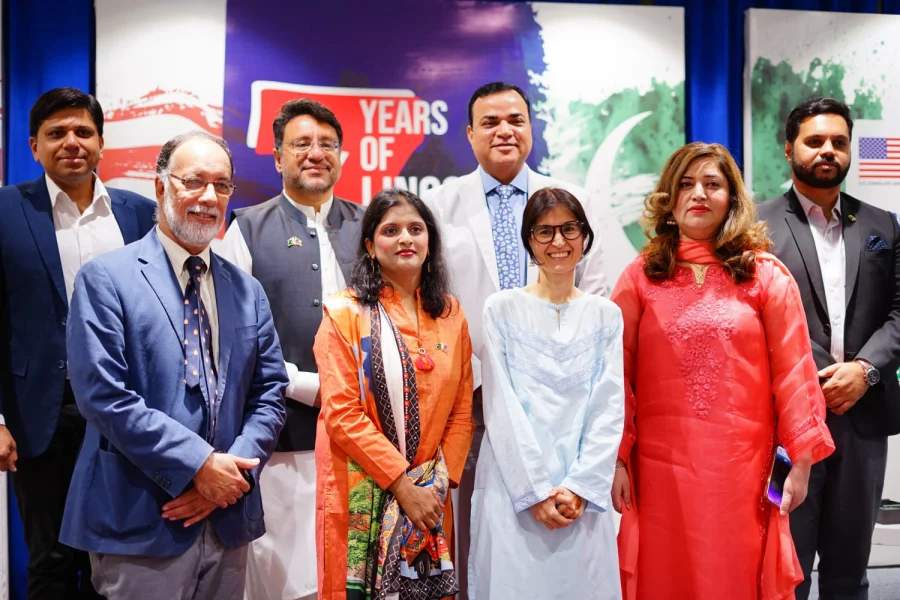An advocacy seminar on Climate Change was arranged at Lincoln Corner, Liaquat Memorial Library, Karachi. The seminar was led and hosted by Dr. Bhavita Kumari, Institute for Global Health and Development Aga Khan University supported by the U.S. Mission in Pakistan in Partnership with the Pakistan-U.S. Alumni Network in collaboration with the Sindh Education and Literacy Department, Private Schools Management Association, and the Pakistan Academic Consortium. The event was targeted at primary and secondary schools’ leadership in Karachi and participants included principals, and academic and administrative heads of schools in Karachi.
The advocacy seminar primarily aimed to advocate for climate-inclusive curricular and extra-curricular activities. Dr. Bhavita highlighted the need to regularly talk about climate change rather than one specific day to celebrate Earth Day and expand the horizon from specific science subjects to a wholistic approach. Chief Guest of the event included Mr. Zahid Ali Abbasi, Secretary to Government of Sindh, Schools Literacy and Education Department. Speakers included Mr. Shahpur Jamall, principal Bayview Academy, Ms. Rafia J Mallah, Additional Director, Schools Literacy and Education Department, Government of Sindh, and Dr. Fozia Parveen, Institute for Educational Development, Aga Khan University. Dr. Shahpur Jamall advocated for policy changes by lobbying policymakers to include climate change education in national curricula is key to addressing climate change sustainably.
Systemic changes target large-scale sources of emissions such as industries, transportation systems, and energy production and so pushing for government intervention through policies like carbon pricing, renewable energy incentives, and emissions regulations can drive systemic shifts towards sustainability. While individual actions are important for raising awareness and initiating change at the grassroots level, systemic changes are necessary for achieving large-scale emissions reductions and addressing the root causes of climate change.
Educating current and future generations about climate science, impacts, and solutions, we equip them with the knowledge and skills needed to make informed decisions and take meaningful action as they are our and our planets future.Dr. Fozia Parveen shared that teachers report feeling in adequately prepared for teaching about climate change, to combat this educator should be provided with training on integrating climate-related topics into their teaching while making sure to encourage creative freedom for educators to be free to include indigenous teachings. Offering experiential budget and resource friendly activities such as field trips, beach cleaning and agricultural involvement like planting trees, as well as, using garden and zoo visits to tech biodiversity as younger students learn better with a more physically involving curriculum.
Encouraging youth to adopt sustainable practices raises awareness about the climate crisis and fosters a sense of responsibility and these actions can inspire others within their communities to make environmentally conscious choices like avoiding consumerism practices such as fast fashion, which is common amount the youth today.
Ms. Rafia Mallah emphasized the need to give importance to the theme of climate change in curricular as well as extra-curricular activities regularly so students can take the message home and share with their communities. Mr. Zahid Ali Abbasi talked about efforts being made to make climate education more accessible in both formal education through updated syllabus and informal education by including gardening planting and other physical activities as extracurricular education.










